Affiliate Disclosure: I earn commissions if you shop through the links below at no additional cost to you.
Last Updated on April 3, 2025 by Jeremy
Maintaining an RV isn’t just about keeping it looking good; it’s about ensuring every adventure is safe and stress-free.
Regular RV maintenance helps you avoid unexpected repairs and costly breakdowns on the road. It’s like giving your RV a health checkup – catching small issues before they become big problems.
RVs are more complex than your average vehicle. They’ve got intricate plumbing, electrical, engine, and structural systems that all need regular attention. Think of it as a mini house on wheels, and just like a house, it needs consistent upkeep to stay in great shape.
Learning basic RV maintenance isn’t just for the mechanically inclined. Anyone can pick up the essential skills with a bit of practice and patience. Plus, it gives you peace of mind knowing that you can handle minor issues on your own and ensures your RV runs smoothly for years to come. Stick with me, and soon, you’ll feel way more confident about your RV maintenance skills.
Essential Tools for RV Maintenance
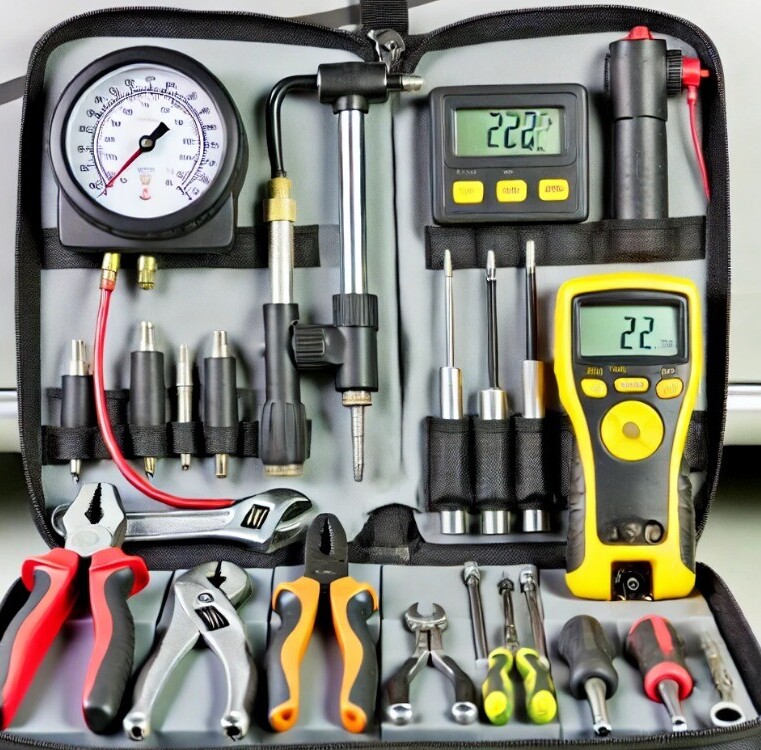
Getting the right tools for RV maintenance is half the battle. Having the proper gear on hand can make tasks quicker and safer. There’s no need for an expensive, high-end mechanic’s toolkit—just the basics will do.
For a full list of tools needed, read this article here: https://everythingrvsandmore.com/rv-tool-kit-checklist/
However a quick overview of tools needed are as follows:
- A tire pressure gauge is an absolute must. Keeping your tires at the recommended pressure helps extend their lifespan and improve fuel efficiency.
- Also, invest in a lug wrench and a hydraulic jack suitable for your RV’s weight. This makes tire changes on the go much less daunting.
- A good multimeter is essential for electrical troubleshooting. It helps you identify issues with your RV’s electrical system quickly.
- Water pressure regulators are crucial to protect your plumbing system from high-pressure damage, especially when hooking up to campsite water supplies.
- A set of basic hand tools like wrenches, screwdrivers, pliers, and a socket set is invaluable. These will cover most minor repairs and adjustments.
- Don’t forget a caulking gun and RV-specific sealant to keep your home-on-wheels watertight.
- Safety first! Quality gloves and safety goggles help protect you while working.
- A headlamp is handy for low-light conditions, and a fire extinguisher is a wise addition for any RV toolkit.
Having these tools ready to go ensures that you’re prepared for regular maintenance and more unexpected issues. With a bit of practice, you’ll find that many tasks are easier than you thought, and you’ll save money by doing them yourself.
If you’re ever in need of new or used RV parts, check out Young Farts RV Parts. They offer a wide selection of both new and used RV parts, clearance items, and trailers for sale. It’s a great resource for finding the right parts at reasonable prices, especially for those hard-to-find dimensions or clearance items.
Routine Inspections and Check-Ups
The backbone of RV maintenance is regular inspections and check-ups. It helps catch issues before they turn into expensive repairs. Establishing a consistent routine for checking various parts of your RV goes a long way.

Daily checks might include:
- quick looks at tire pressure,
- fluid levels,
- and a visual inspection for any obvious issues.
This habit ensures that you catch any pressing concerns before hitting the road, making your travel safer.
Weekly inspections should cover a bit more ground. Take a closer look at your engine oil, coolant levels, and windshield wiper fluid. Don’t forget to check your lights, turn signals, and mirrors to ensure everything is in working order. Taking a bit of time each week helps keep everything running smoothly.
Monthly checks dig even deeper. Inspect your brakes and suspension system, looking for any signs of wear or damage. Evaluate your battery connections for corrosion and make sure your waste disposal and propane systems are functioning properly. Documenting monthly inspections helps track the health of your RV over time.
Keep a log of your routine inspections and check-ups. Note the date, what you inspected, and any maintenance you performed. This log not only helps you stay on top of your RV’s needs but also can be useful if you need to discuss issues with a mechanic.
Routine inspections make a big difference. They help you stay aware of potential problems and maintain your RV more effectively. They also give you peace of mind knowing that you’re on top of your RV’s health, keeping your travels safe and enjoyable.
Engine and Transmission Care
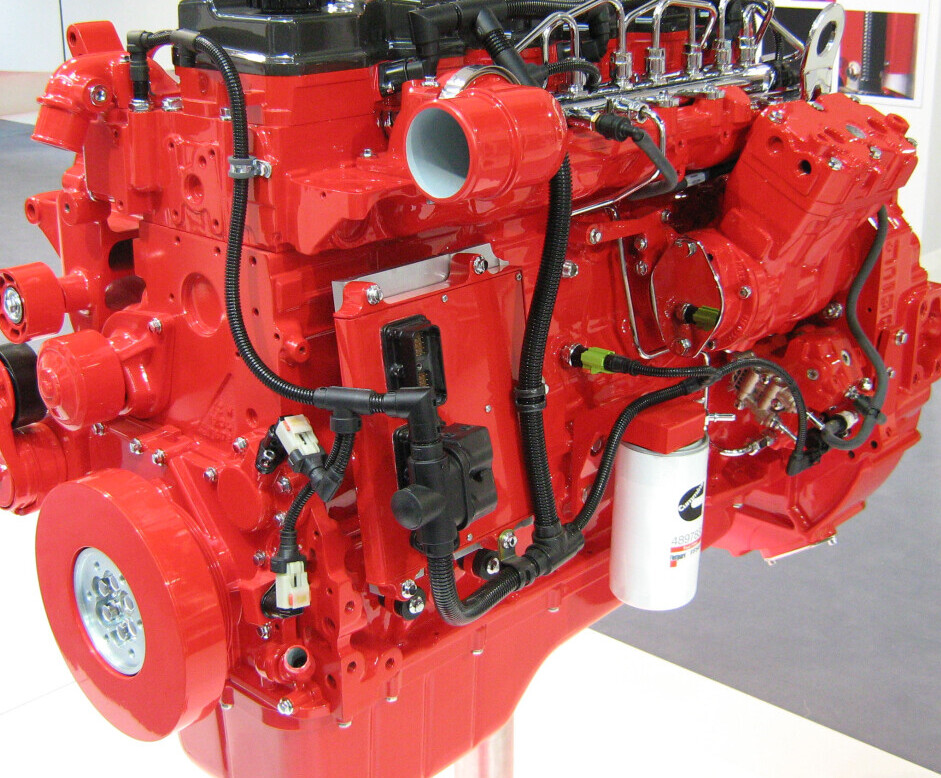
Keeping your RV’s engine and transmission in good shape is like keeping the heart of your vehicle healthy. Regular engine maintenance can save you from avoidable headaches on the road. Start with the basics: frequently check and change the engine oil. It’s the lifeblood of your engine and regular changes prevent wear and tear.
Don’t forget to check the coolant levels. An overheated engine can quickly ruin a trip. Make sure your coolant is topped off and that there are no leaks in the system. It’s also a good idea to flush and replace the coolant periodically according to your RV’s manual.
Your air filter should be checked and replaced if it looks dirty. A clogged air filter can reduce engine efficiency and lead to more significant issues. Spark plugs also need periodic inspection and replacement. They might be small, but they have a big impact on your engine’s performance.
Transmission care is equally important. Check the transmission fluid regularly; low levels or dirty fluid can spell trouble. If you notice any grinding noises or trouble shifting gears, it’s time to take a closer look or consult a professional.
Recognizing signs of wear and tear in both your engine and transmission systems early can save you from costly repairs. If you spot any unusual noises, vibrations, or leaks, it’s best to address them right away. Keeping an eye on these essentials helps ensure your RV runs smoothly mile after mile.
Tire and Brake Maintenance
Your RV’s tires and brakes are critical for safety. Ensuring they are in top shape is non-negotiable.
Here’s an article that give you a list of the 6 best tires available for Travel Trailers:
https://everythingrvsandmore.com/6-best-rated-travel-trailer-tires/
Start by regularly checking your tire pressure. Under-inflated tires can lead to blowouts, while over-inflated ones can cause uneven wear. A tire pressure gauge is your best friend here. Make it a habit to check the pressure before every trip.
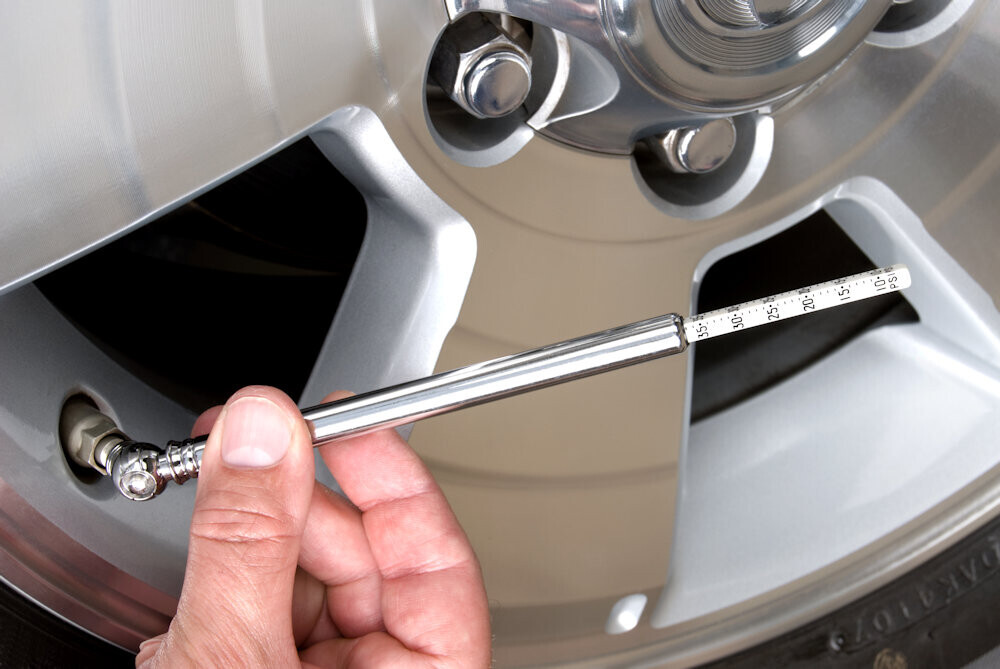
Next, examine the tire tread. Worn-out tread reduces traction and increases the risk of accidents. Use the penny test: place a penny head-first into several tread grooves. If you can see the top of Lincoln’s head, your tread is too shallow, and it’s time for new tires.
Personal Tip:
In our travels over the last 3 years, prior to leaving one campground to head to our seasonal jobs as park operators, I always jack up the axles of the travel trailer and spin the wheels, checking the sound of the bearings and inspecting the electric brake system. By noting the wear and tear on the tires during these checks, we’ve already replaced 2 tires before they became serious problems. This small routine has saved us from potential blowouts on the road.
Don’t overlook the importance of tire rotation. Rotating your tires every 6,000 to 8,000 miles promotes even wear and extends their lifespan. It’s a simple step that can save you from premature tire replacements.
Brakes are equally vital. Listen for any squeaking or grinding sounds when you apply the brakes. These noises can indicate either worn-out brake pads or other underlying issues. Checking your brake fluid regularly is a must. Low or dirty brake fluid can lead to braking problems, which you definitely want to avoid.
Inspect the brake pads and rotors. If you’re not comfortable doing this yourself, periodic professional inspections are a great idea. Don’t forget the emergency brake. Make sure it’s functioning correctly; it’s your backup safety system in case of main brake failure.
Proper tire and brake maintenance ensures that your RV stays safe and performs reliably on all your adventures. A little attention here goes a long way in providing peace of mind on the road.
RV Plumbing System Maintenance
Understanding your RV’s plumbing system is crucial for a hassle-free experience. The RV plumbing system usually consists of fresh water, grey water, and black water tanks, each with its unique maintenance needs.
Preventing leaks is vital. Regularly inspect hoses and connections for any signs of wear or damage. Replacing worn-out hoses and tightening loose connections can save you from a messy and costly situation down the line.
Use RV-friendly chemicals to keep the black water tank clean and odor-free. These chemicals help break down waste and prevent clogs. It’s also a good practice to flush the black water tank frequently and rinse it thoroughly to maintain its cleanliness.
Winterizing your plumbing system is essential, especially if you live in a colder climate. Drain all water from the fresh, grey, and black water tanks. Use non-toxic RV antifreeze to protect your pipes and plumbing fixtures from freezing and cracking.
Don’t forget about the water heater. Periodically check for mineral build-up and sediment. Draining and flushing the water heater can improve its efficiency and extend its life.
Keeping your plumbing system in good shape ensures a comfortable and pleasant RV experience. A little preventive maintenance can keep your plumbing running smoothly and stress-free.
Electrical System Maintenance

Your RV’s electrical system is the lifeline for many conveniences on the road. Keeping it in good condition ensures everything from lights to appliances runs smoothly. Start by familiarizing yourself with the basics: your RV’s battery system, fuses, and circuit breakers.
Battery maintenance is key. Check the battery terminals for corrosion regularly. A simple mixture of baking soda and water can clean off any buildup. Make sure the batteries are securely fastened and that the connections are tight. Also, keep an eye on the battery’s water levels, topping them up with distilled water when needed.
Understanding your RV’s power system involves knowing the difference between AC and DC power. The AC system powers your outlets and larger appliances when plugged into shore power, while the DC system runs off your battery and powers things like lights and the water pump when you’re off-grid. Keeping both systems in good working order is crucial.
Troubleshooting common electrical issues can save you time and frustration. If an outlet isn’t working, check the GFCI reset button and the corresponding circuit breaker. For lights that won’t turn on, inspect the bulbs and fuses first. Keeping spare fuses and light bulbs on hand is always a good idea.
Solar panels are becoming more popular, providing an eco-friendly way to keep your batteries charged. Regularly clean the panels to ensure maximum efficiency and check the wiring connections frequently to avoid energy loss.
Maintaining your electrical system involves a bit of routine care and attention. With a solid understanding of how everything works and a few proactive measures, you can avoid many common electrical problems and keep all your systems running smoothly.
Exterior and Interior Care
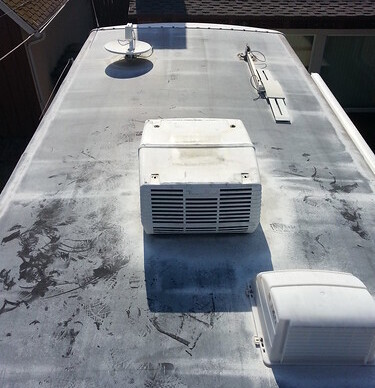
Keeping both the exterior and interior of your RV in top condition isn’t just about looks—it’s about prolonging the life of your home on wheels. Regular cleaning and maintenance can prevent small issues from becoming big, expensive problems.
Start with the exterior. Routine washing removes dirt, debris, and road grime that can damage paint and finishes over time. Use a mild soap specifically designed for vehicles along with a soft brush or cloth. Pay extra attention to your roof; it often gets neglected but is critical to maintaining the integrity of your RV. Regularly inspect the roof for cracks or damage and apply a good-quality RV sealant to keep it watertight.
Don’t overlook your RV’s windows and seals. Clean them regularly and check for any signs of wear or gaps, as bad seals can lead to leaks. Re-seal them as needed to ensure they are leak-proof.
Moving to the interior, keeping it clean and well-maintained makes your RV a more enjoyable place to be. Vacuum regularly to get rid of dirt and dust. Wipe down surfaces with cleaning products safe for your RV’s materials, and don’t forget the hidden spots like under seats and in storage compartments.
Inspect your furniture and fixtures. Tighten screws, oil hinges, and check for any wear and tear. Regularly test smoke detectors and carbon monoxide detectors to ensure they are working properly. Replace the batteries at least once a year.
Maintaining the appliances is also essential. Clean the fridge coils, inspect the water heater, and ensure the stove and oven are functioning correctly. Regular maintenance of these items will keep your RV cozy and fully functional.
Proper care of your RV’s interior and exterior keeps it looking good and functioning well, making your travels more enjoyable and less prone to interruptions. A little effort now saves you lots of time and money down the road.
Troubleshooting Common RV Issues
Even with regular maintenance, issues can still pop up. Here are some common problems RVers face and how to troubleshoot them:
- Electrical Outlets Not Working:
If an outlet stops working, start by checking the GFCI (Ground Fault Circuit Interrupter) reset button. If that doesn’t work, check the fuse box for a blown fuse. Having a few spare fuses on hand will save you a trip to the store. - Low Water Pressure:
If you’re experiencing low water pressure, make sure the water pump is functioning correctly and check the water filter for clogs. It could also be due to an external source at a campsite. A water pressure regulator is a good preventive tool. Read this full guide for more info: https://everythingrvsandmore.com/low-water-pressure-in-your-rv/ - Battery Not Charging:
If your RV’s batteries aren’t holding a charge, inspect the terminals for corrosion. Cleaning them with a baking soda and water solution often does the trick. Also, ensure your battery is filled with distilled water if necessary, and check that your solar panels or alternator are providing sufficient charge. - Strange Noises from the Brakes:
If you hear a squeaking or grinding noise when braking, it’s likely time to replace the brake pads or rotors. Don’t ignore this, as it can quickly turn into a more expensive repair. - Tire Vibration or Pulling to One Side:
This could indicate a problem with tire alignment, uneven wear, or an issue with the suspension system. Inspect the tires for unusual wear and check tire pressure. If necessary, rotate the tires or have the alignment checked professionally.
By understanding how to troubleshoot these common issues, you can avoid unnecessary delays and keep your RV road-ready.
Preparing Your RV for Long-Term Storage
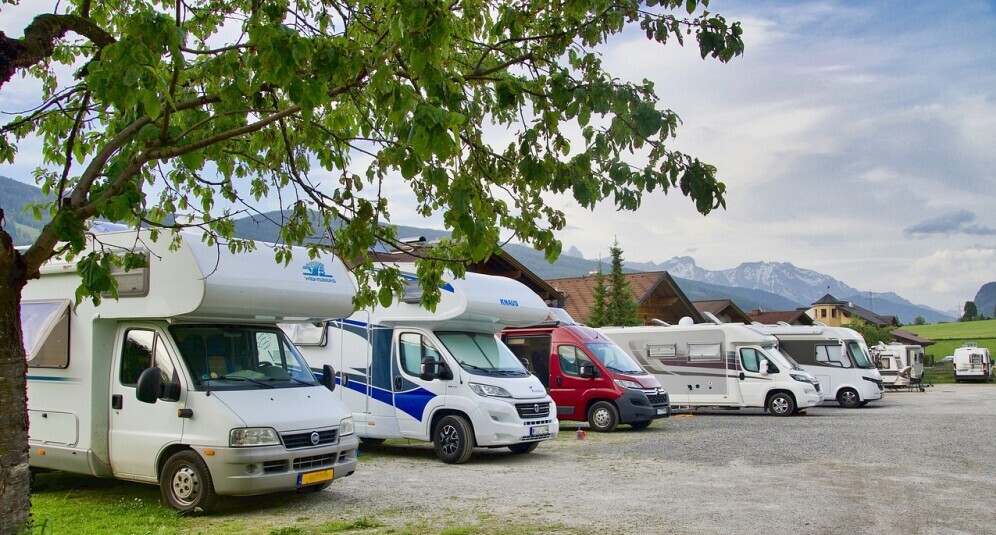
Getting your RV ready for long-term storage involves more than just parking it and walking away. Proper preparation ensures that your RV stays in great shape, even when it’s not in use. Start by thoroughly cleaning both the interior and exterior. This means removing any food that might attract pests and giving surfaces a good wipe-down.
Next, focus on protecting against weather damage. Cover your RV with a breathable cover specifically designed for its size. This helps prevent mold and mildew by allowing moisture to escape. For added protection, use tire covers to shield them from harsh sunlight, which can cause cracking and deterioration.
Don’t forget about the plumbing system. Drain all water from the tanks and lines to prevent freezing and pipe bursts. Use RV antifreeze in your water system if you’re storing the vehicle in a colder climate. This simple step can save you a lot of trouble when it’s time to hit the road again.
The electrical system also needs attention. Disconnect the batteries and store them in a cool, dry place. Regularly charge them to maintain their health. If you have solar panels, cover them to prevent unnecessary wear.
Take care of the engine and mechanical parts, too. Change the oil and top off all fluids. Add a fuel stabilizer to your gas tank to keep the fuel from breaking down. You might also want to lift the RV on jacks to take the weight off the tires and suspension, preventing flat spots and stress on the system.
Lastly, keep an eye on ventilation. Crack open a vent or window to allow air circulation. This helps prevent musty odors and keeps everything fresh inside.
Preparing your RV for long-term storage isn’t a complicated process, but it does require careful attention to detail. Following these steps ensures your RV remains in excellent condition, waiting ready for your next adventure.
Keep Your RV Road-Ready with Regular Maintenance
Maintaining your RV doesn’t have to be overwhelming. With the right tools, a solid routine, and a bit of knowledge, you can keep your home-on-wheels in peak condition for every adventure.
Whether you’re gearing up for a weekend getaway or preparing for long-term storage, regular check-ups will save you time, money, and headaches down the road. Ready to hit the road with confidence?
Make sure to bookmark this guide, grab your essential tools, and explore more in-depth RV maintenance tips throughout our website! Don’t forget to check out our YouTube channel for detailed maintenance walkthroughs and additional tips to keep your RV road-ready!
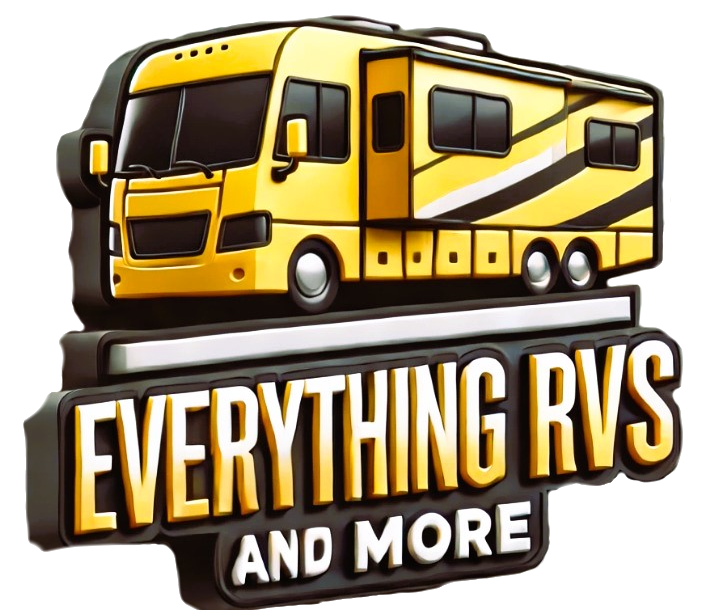

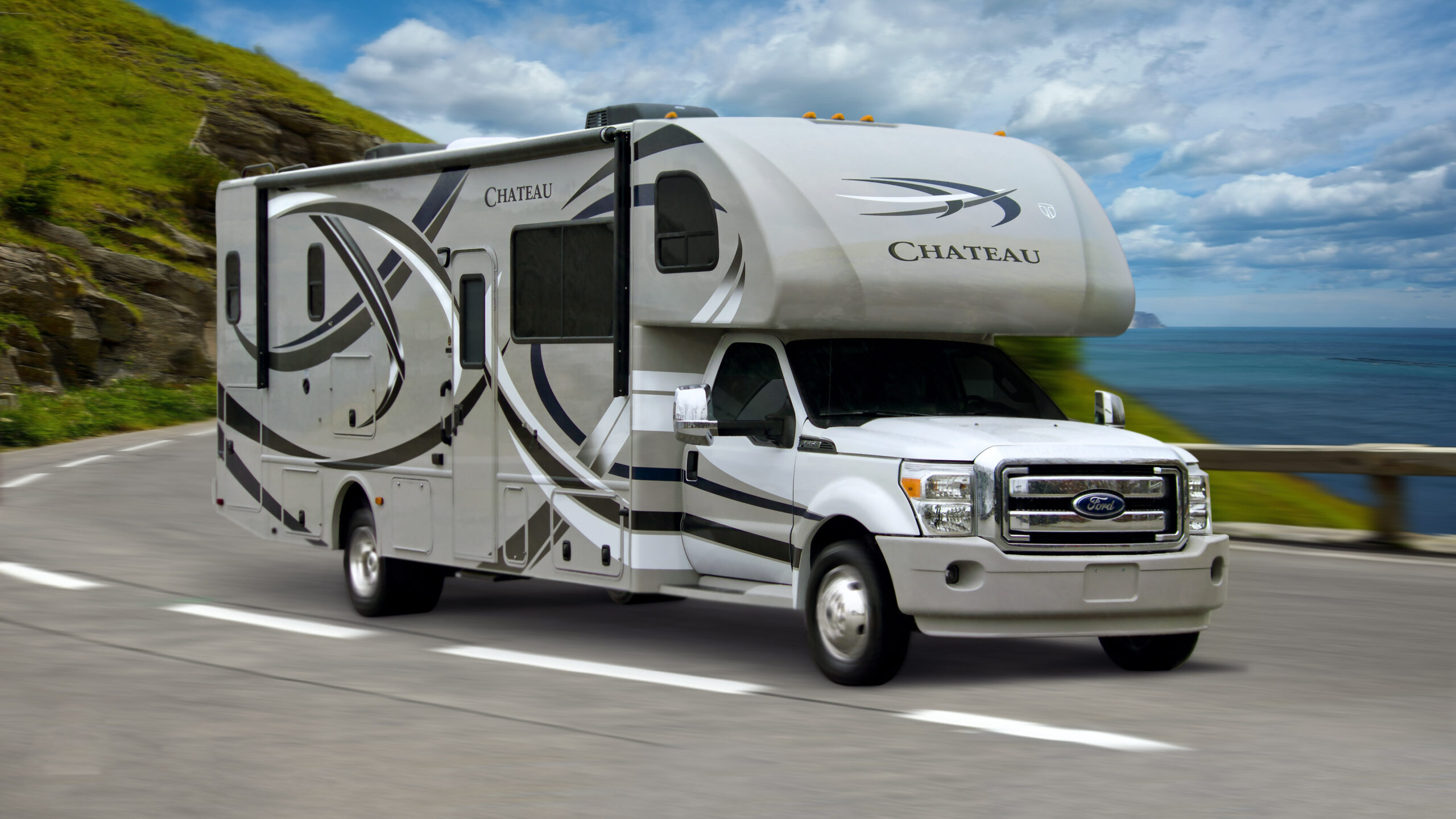

.jpg/:/cr=t:5.56%25,l:0%25,w:100%25,h:88.89%25/rs=w:1240,h:620,cg:true)


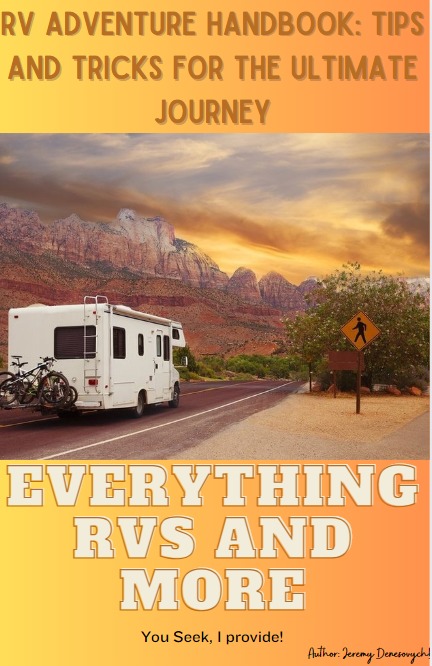
Leave a Reply